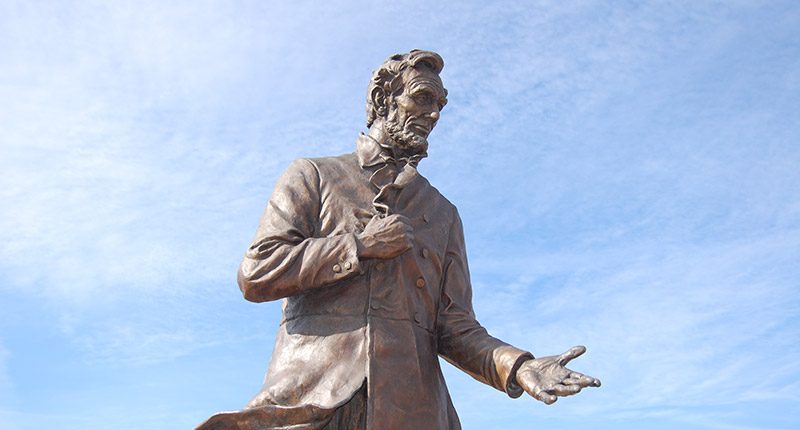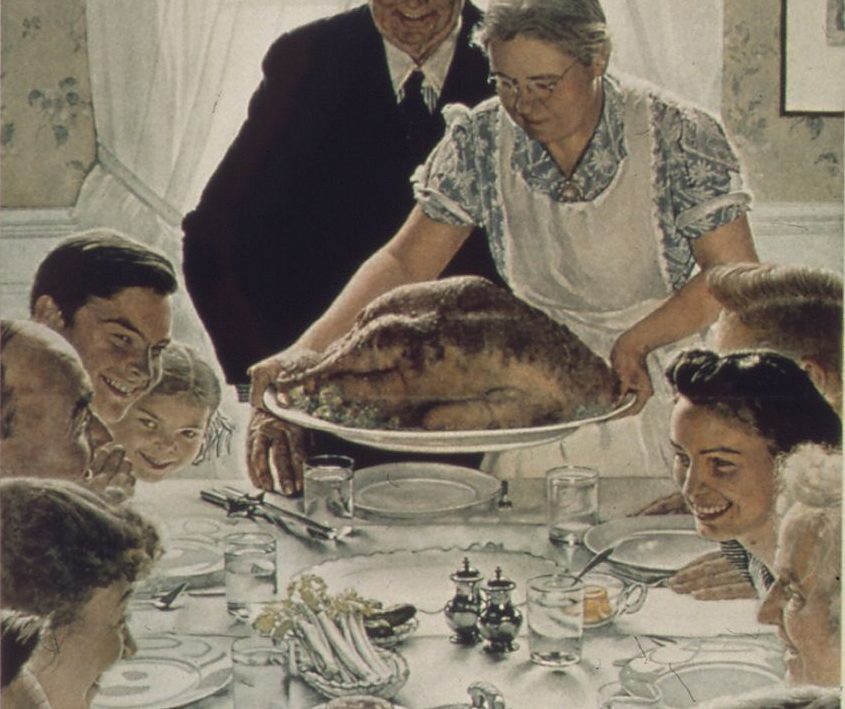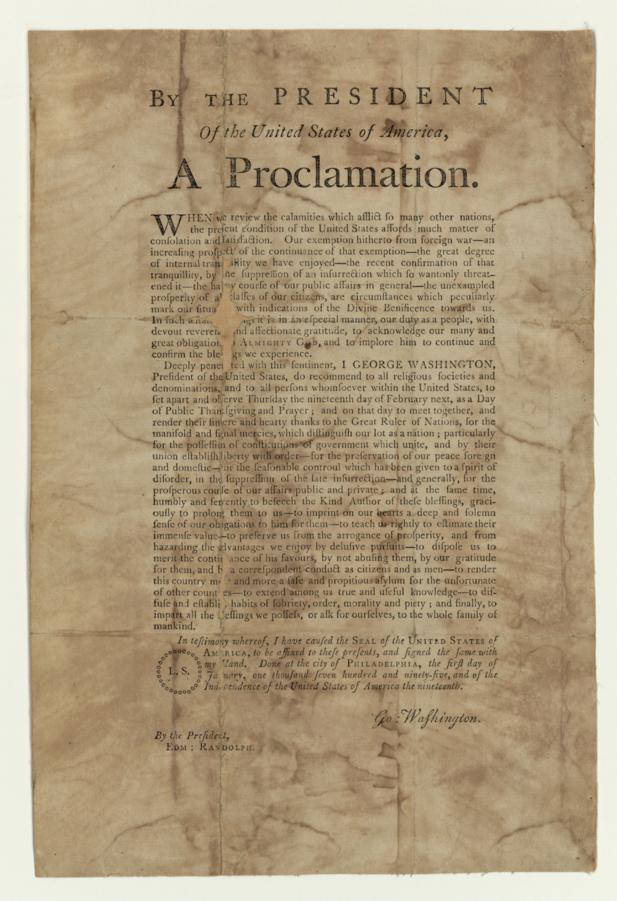Thanksgiving Wasn't Always a Source of National Unity.
Passionate Sympathies

Lincoln’s American heart wrestled with a trying season.
Lincoln’s Thanksgiving Proclamation sounds almost like a tune-up for his Second Inaugural—thoughtful, thought-provoking, passionate. While drafted by Secretary of State William Seward, the spirit of the language closely reflects Lincoln’s urgings during the war, following the battles of Shiloh and Gettysburg.
An orchestra tuning up is always a bit cacophonous, however. Let me pick out four disparate notes.
Fruitful fields. Lincoln made many fields fruitful as a young man, by clearing and plowing them—and he hated it. Why refer to them now? In the hope that Americans might “soften” their hearts even in the midst of strife.
The laws have been respected and obeyed. So they had been, except when they hadn’t. Three months before Lincoln delivered this paean to Union orderliness, the drafts riots in New York had been suppressed by army units firing howitzers up Third Avenue. Walt Whitman’s brother wrote him, from the city, not to believe the smallness of the official death toll. Add to this the murders of army recruiters in the Midwest, the often-summary justice meted out in return by military tribunals, and Lincoln’s own forthcoming assassination at the hands of a free-lance Confederate agent. Some respect.
No human counsel hath devised nor hath any mortal hand worked out these great things. They are the gracious gifts of the Most High God. And later: with humble penitence for our national perverseness and disobedience. Elaborate efforts are sometimes made to pack Lincoln onto the philosophers’ choo-choo. (Plato to Nietzsche—all aboard!) But the Proclamation, and many other similar formulations in Lincoln’s speeches and writings, attest that he is like no philosopher before the time of Christ, or from Spinoza on. Lincoln, once his youthful infatuation with Thomas Paine has passed, has more in common with St. Augustine, Martin Luther, and Pat Robertson than the Committee on Social Thought. He is bound to the God of the Bible.
Our beneficent Father who dwelleth in the Heavens. Not that his relationship with God was particularly happy. Lincoln acknowledges, submits—and writhes. His distress is not as open here, or anywhere in public, as it would be in his private communications with the Quakeress Eliza Gurney (who tried, with limited success, to soothe him). But there is veiled protest in the metaphors, astronomical and familial, of this phrase. God the Father may be beneficent, but He’s in heaven. Meanwhile His children are down on earth, doing their bloody best. Can we get some help, please?
Widows, orphans, mourners, and sufferers. The Civil War was a satire on the notion of male privilege, slaughtering three quarters of a million men, including several who were close to Lincoln personally—law office protégé Elmer Ellsworth (shot tearing down a rebel flag in Alexandria), Whig party crony Edward Baker (killed at the battle of Ball’s Bluff), Bloomington county clerk William McCullough (killed in the early stages of the Vicksburg campaign). But Lincoln characteristically begins his list of sufferers, not with them, but with widows and orphans. Any pious Victorian would do the same. But Lincoln was additionally prompted by his family history (dead mother, difficult father, loving step-mother). Lincoln’s almost feminine sympathies were spotted early on by Seward: “The president,” he said at a dinner party the day before Lincoln’s first inauguration, “has a curious vein of sentiment running through his thought which is his most valuable mental attribute.” It was a vein of thought which would help him endure God’s mysterious and punishing ways.
The American Mind presents a range of perspectives. Views are writers’ own and do not necessarily represent those of The Claremont Institute.
The American Mind is a publication of the Claremont Institute, a non-profit 501(c)(3) organization, dedicated to restoring the principles of the American Founding to their rightful, preeminent authority in our national life. Interested in supporting our work? Gifts to the Claremont Institute are tax-deductible.
How Abraham Lincoln created Thanksgiving.
Thanksgiving remains one of our few unifying traditions.
We should be thankful for the sheer wonder of being.
The Genuinely American Debate over Federalism and Thanksgiving.
Allen Guelzo, Richard Brookhiser, Joseph Bottum, and Justin Dyer on the thought and action of Lincoln's Thanksgiving and his wrestling with God.





